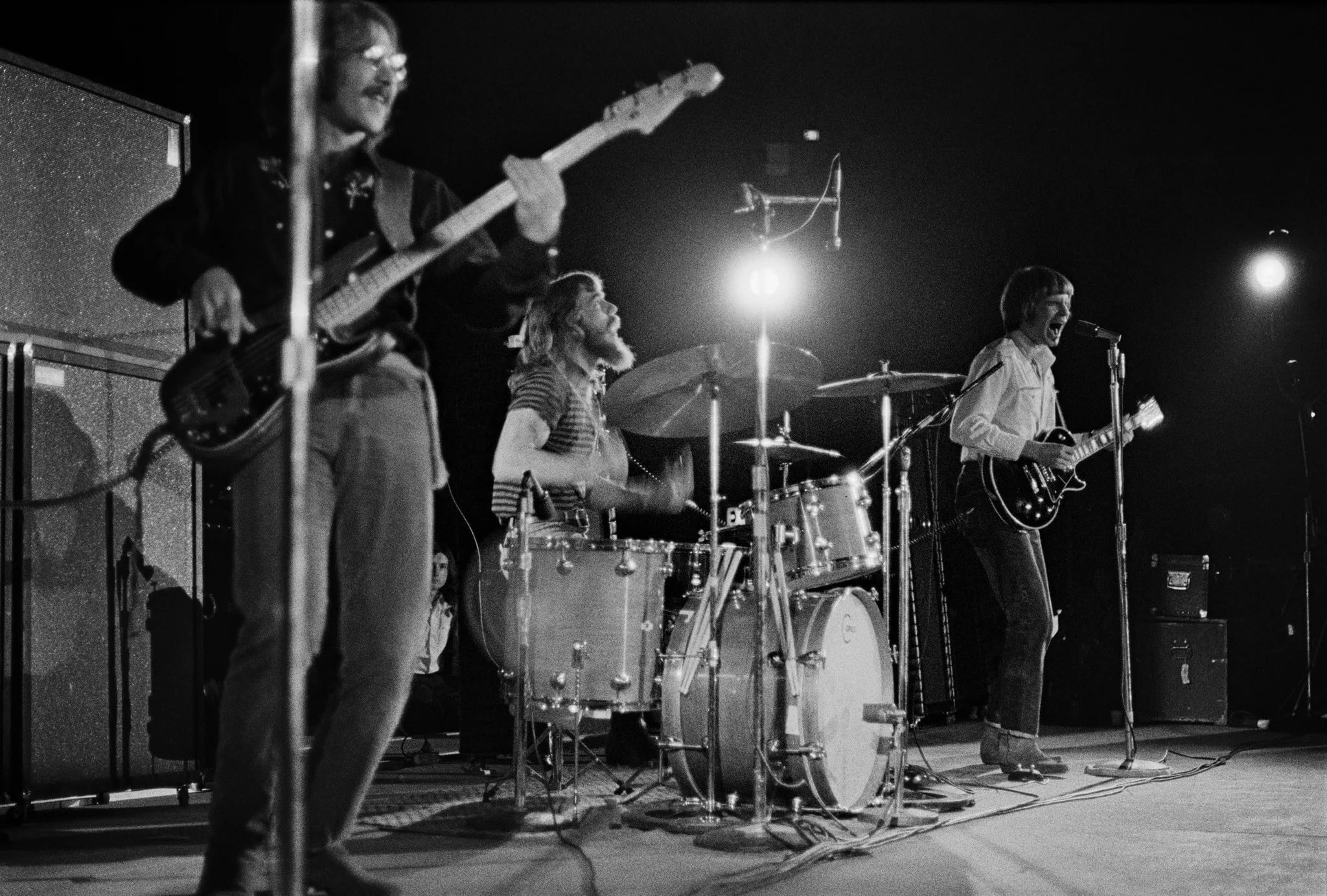
A river keeps rolling whether you stand still or not, and “Proud Mary” is Creedence Clearwater Revival turning that truth into song—movement as survival, escape as dignity, simplicity as freedom.
When Creedence Clearwater Revival released “Proud Mary” in January 1969, it felt instantly familiar, as if it had always been part of American music. Issued as a single and included on their second studio album Bayou Country (released the same month), the song rose swiftly to #2 on the Billboard Hot 100, held back from the top spot only by “Dizzy” by Tommy Roe. In the UK, it also reached #2, confirming its transatlantic pull. The album Bayou Country went on to peak at #7 on the Billboard 200, establishing CCR not as a fleeting success, but as a defining voice of the moment.
Yet what made “Proud Mary” remarkable was not its chart position—it was its perspective.
Written by John Fogerty, the song was born not on a riverbank, but in motion. Fogerty later recalled writing it while commuting to and from his job at the National Guard, reflecting on the idea of leaving behind a grinding routine for something simpler, freer, and more honest. The riverboat in the song becomes a metaphor, not a setting—a symbol of choosing movement over stagnation, flow over pressure. In that sense, “Proud Mary” is less about geography than philosophy.
The opening lines are deceptively plain: “Left a good job in the city / Working for the man every night and day.” There is no melodrama here, no grand rebellion. Just exhaustion. Fogerty sings it with a voice that sounds both weary and resolved, as if the decision has already been made. When the chorus arrives—“Rollin’, rollin’, rollin’ on the river”—it doesn’t explode. It glides. The release is calm, confident, earned.
Musically, Creedence Clearwater Revival are doing what they always did best: distilling American roots into something lean and timeless. The rhythm is steady, almost hypnotic. Stu Cook’s bass and Doug Clifford’s drums keep the song grounded, while Fogerty’s guitar and vocal carry the narrative forward without excess. Nothing calls attention to itself. Everything serves the story.
That restraint is part of why the song has endured so powerfully. “Proud Mary” doesn’t beg you to believe in freedom; it shows you what freedom feels like when it’s chosen quietly. The river doesn’t rush. It doesn’t argue. It just keeps moving. And so does the narrator.
The meaning of “Proud Mary” deepens with time. On the surface, it’s about leaving a job and finding a new life downstream. Beneath that, it speaks to a broader American longing—the desire to step away from systems that consume more than they give, to trade ambition for balance, status for peace. In 1969, amid political unrest and cultural upheaval, that message resonated deeply. But it has never belonged only to that era. Every generation hears its own reasons in those lines.
Part of the song’s cultural immortality lies in its adaptability. In 1971, Ike & Tina Turner transformed “Proud Mary” into something entirely different—slow, explosive, electrifying—taking it to #4 on the Billboard Hot 100 and winning a Grammy Award. Their version proved the song’s structural strength: it could carry restraint or spectacle and remain truthful. Still, at its core, the original CCR recording remains definitive for many listeners—not because it’s flashier, but because it understands stillness.
Within CCR’s catalog, “Proud Mary” stands as a kind of mission statement. It embodies the band’s commitment to clarity, to American musical roots, to storytelling that doesn’t explain itself. Fogerty never tells us what happens after the river keeps rolling. He doesn’t need to. The act of leaving is the point. The choice to move is the victory.
Over the decades, the song has appeared everywhere—films, commercials, political rallies—sometimes misunderstood, sometimes stripped of its quiet resistance. Yet even when misused, it refuses to lose its center. The river always pulls it back to meaning. It reminds listeners that freedom is not always loud, and rebellion does not always shout.
Today, when “Proud Mary” plays, it still feels like motion you can trust. The voice is steady. The rhythm is sure. The promise is simple: you don’t have to win the race. You just have to keep rolling toward something that feels true.
And that is why the song endures—not as nostalgia, but as companionship.
A reminder that life, like a river, offers dignity not to those who control it…
but to those who learn when to let it carry them.